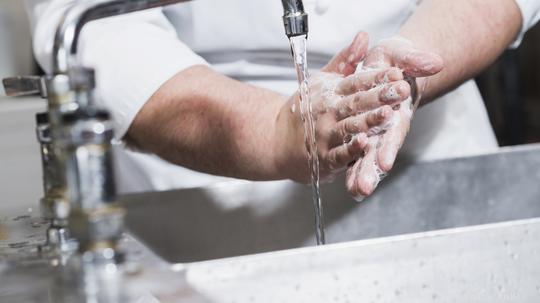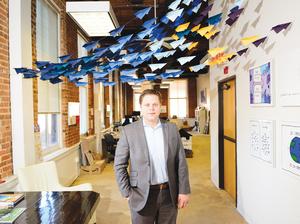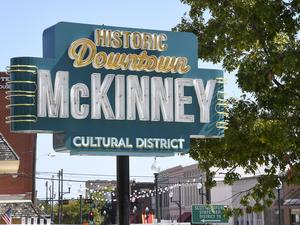
Co-founders Irewole Akande and Ibraheem Alinur want you to know you probably aren’t washing your hands correctly. And by tracking that data at schools and other organizations, they are hoping to tackle broad public health issues.
When Akande moved to North Texas to attend a master’s program at SMU, he was unsure whether he was going to continue on the City Health Tech, a health care startup focused on hand washing, after years working on the project failed to gain much traction. Now, the Chicago-based company has raised a $150,000 pre-seed round from a Northwestern University alum to pilot its technology in Chicago and Dallas. That brings the company’s total to about $175,000, and as it eyes more funding in the near future, the company is looking to continue its expansion from DFW.
“COVID really just showed us how much people value this idea of their personal health over public health, but it’s public health that directly affects the personal health,” said Akande, who serves as CTO.
City Health Tech’s initial product is called Opal. Similar to automated hand washing stations found in many public restrooms, but with higher-powered technology, the Opal senses when a person has approached a faucet and displays informational and entertaining content to promote hand washing for at least 20 seconds. It then tracks that data so that organizations can track that indicator of public health among its population.
At the moment, the company is focused on deploying its tech in schools, food handling facilities and offices.
“Prevention is going to come by changing peoples’ behavior toward public health… and we’re going to be intentional about that, because that’s where the long-term value is,” Akande said. “We want to live in a society where every single person is doing what they can to make sure they can keep others safe. We don’t want to put a bandage on a fracture and hope that everything is going to be okay.”
The company was launched in 2017 and deployed its first prototype in 2019. With the new funding, City Health is planning to deploy 300 devices in facilities in Chicago and DFW, including The Lamplighter School in Dallas. Organizations pay an upfront cost for each device, along with a small monthly subscription. Content and be customized to the client’s needs.
To continue its growth, Alinur said City Health is planning to raise an additional $1.5 million to $2 million in July, following the initial product launch. That funding would allow the company to hit its goal of deploying more than 10,000 Opal devices over the next year.
“What we want to do is change the human perception of disease… and you can only do that when you have a lot of data,” Alinur, City Health’s CEO, said. “You can really be intentional about how things are spreading, because right now we’re at a great place, we’re all clean…. but as we return, we have this opportunity to keep that momentum moving forward and treat every outbreak as an isolated incident.”
New funding would also help City Health to bring on three of the people working on the project on full-time, raising the company’s headcount to seven. And it’s planning for that growth to happen in Dallas, following Akande’s graduation from SMU. He also points to Dallas’ skyline as a reason for the relocation. With its multitude of new construction, the company sees opportunities to deploy more of its product and experiment with new ones. Like many others, Alinur also pointed toward the lower cost of doing business and living that the region provides as drivers of the move.
“(Dallas) just works really well with where we are. The environment is right for it, No. 1. And No. 2, I think the conversations are there for it, the passion and commitment in Texas is there, so we think… this is where we want to be,” Akande said. “Dallas is intentionally trying to get people like us to be part of the game.”
As it scales, Alinur said advertising on its devices will help continue further growth as the company looks to partner with local governments and businesses to develop new technologies to fight and track future outbreaks of diseases.
“As we solve this very meaningful problem, we’re going to be building out an entire IoT infrastructure to be able to analyze data, promote content, talk about emergency preparedness, and so the question is how else can we use that network to solve other meaningful questions,” Alinur said. “I want to be building the cities of the future in a connected, sustainable way.”







